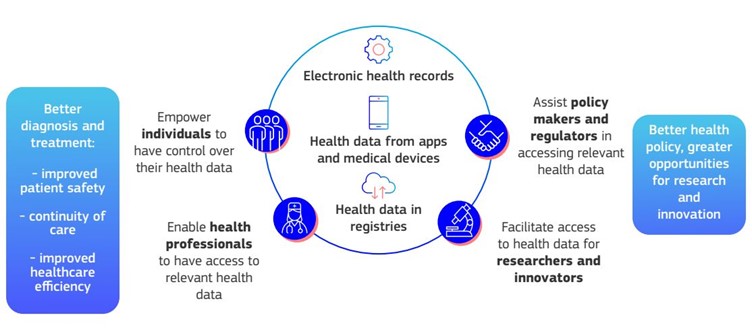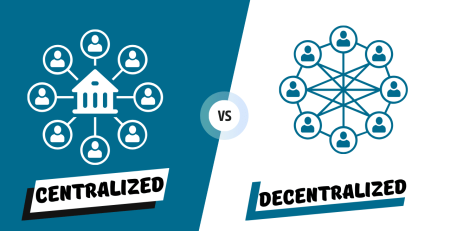by Fundación iSYS (fundiSYS)
Our data has emerged as an invaluable strategic resource, and the European Union is implementing significant reforms to redefine the management of personal data, particularly health-related data. The goal of these reforms is to empower individuals, ensure the ethical use of data, and foster innovation. In this context, the concept of the European Health Data Space (EHDS) [1] is introduced, an initiative that promotes a citizen-controlled data governance model, which constitutes the core of the approach advocated by the CONSENTIS project.
The EHDS is an initiative aimed at creating a common regulatory framework to facilitate the secure exchange, access, and use of health data, for purposes including patient care, research, policymaking, and technological innovation. This space promotes interoperability and trust, fundamental principles of the European Union’s value system, which include privacy, transparency, and individual rights.
What sets this initiative apart is its emphasis on citizen empowerment. Throughout history, health data has been concentrated in specific institutions, fragmented across different systems, and used without clear control by the citizens themselves. The EHDS aims to change this dynamic by placing individuals at the center of the health data ecosystem, encouraging their active participation in the processes of data collection, management, and use.

Consent as a Fundamental Pillar in the CONSENTIS Project
Consent, beyond being a legal requirement under the General Data Protection Regulation (GDPR), is presented as a key instrument for the autonomy of individuals. However, in practice, the consent mechanisms frequently used are insufficient: they are opaque, difficult to manage, and do not provide users with real control over their data. In this context, the CONSENTIS project proposes a citizen-centered approach, integrating ethical, legal, and technological layers to provide individuals with the necessary tools to manage and actively share their health data.
This model enables a fundamental transformation, shifting from a logic where citizens are passive subjects in data collection, to one where they become active agents in the data value chain. By designing systems that respect user autonomy and promote the voluntary exchange of data for the common good, CONSENTIS helps bridge the trust gap that has historically existed between citizens and the institutions responsible for managing their data.
Moreover, this approach offers benefits for both patients and researchers. Patients, by being able to decide to share their data in an anonymized form, can be assured that their data will be used ethically and securely. On the other hand, researchers and innovators benefit from richer and more diverse datasets, which facilitate significant advances in areas such as personalized medicine, early diagnosis, and evidence-based policy development.
For individuals to exercise true control over their data, they need intuitive tools that allow them to manage their preferences and track the usage of their data. In this regard, technology should act as an enabler, not a guardian. The CONSENTIS project supports the development of technological infrastructures that enhance privacy, ensure data integrity, and provide standardized consent interfaces. These tools are designed to be interoperable within the EHDS framework, ensuring that consent accompanies data across borders and platforms without compromising user rights.
Beyond legal compliance, projects like CONSENTIS propose a fundamental cultural shift: from a logic of data exploitation to one of data solidarity, where the exchange of information is not seen as an obligation but as a voluntary action driven by a sense of collective benefit. This approach not only advances the management of health data but also fosters the creation of a more inclusive and equitable digital society, resulting in a safer, more transparent, and participatory environment.
References
[1] Regulation (EU) 2025/327 of the European Parliament and of the Council of 11 February 2025 on the European Health Data Space and amending Directive 2011/24/EU and Regulation (EU) 2024/2847 (Text with EEA relevance)
[2] The European Health Data Space (EHDS) https://www.european-health-data-space.com/







